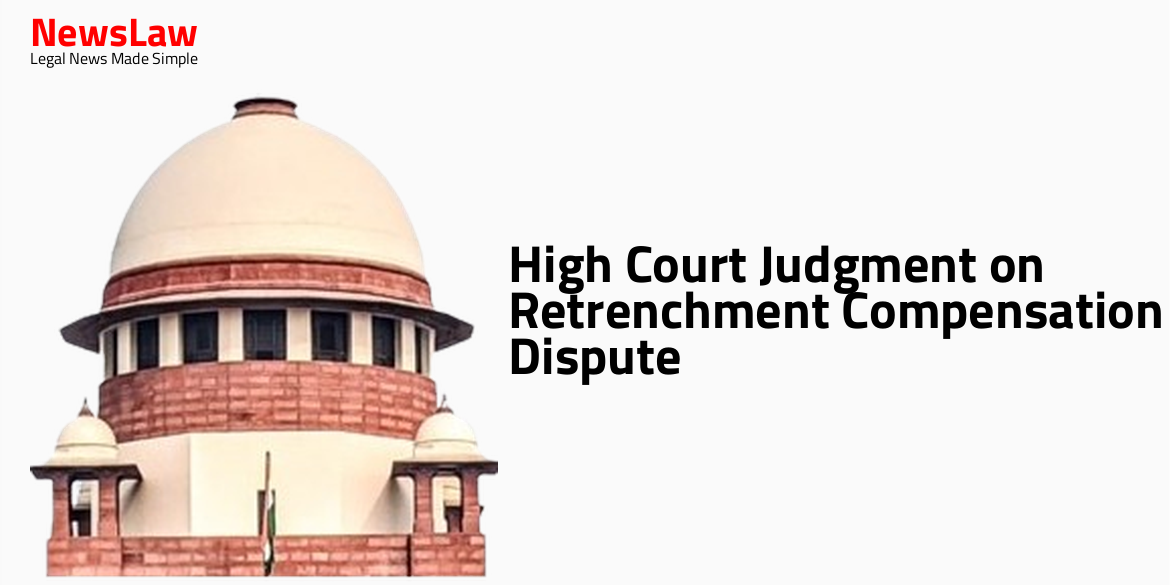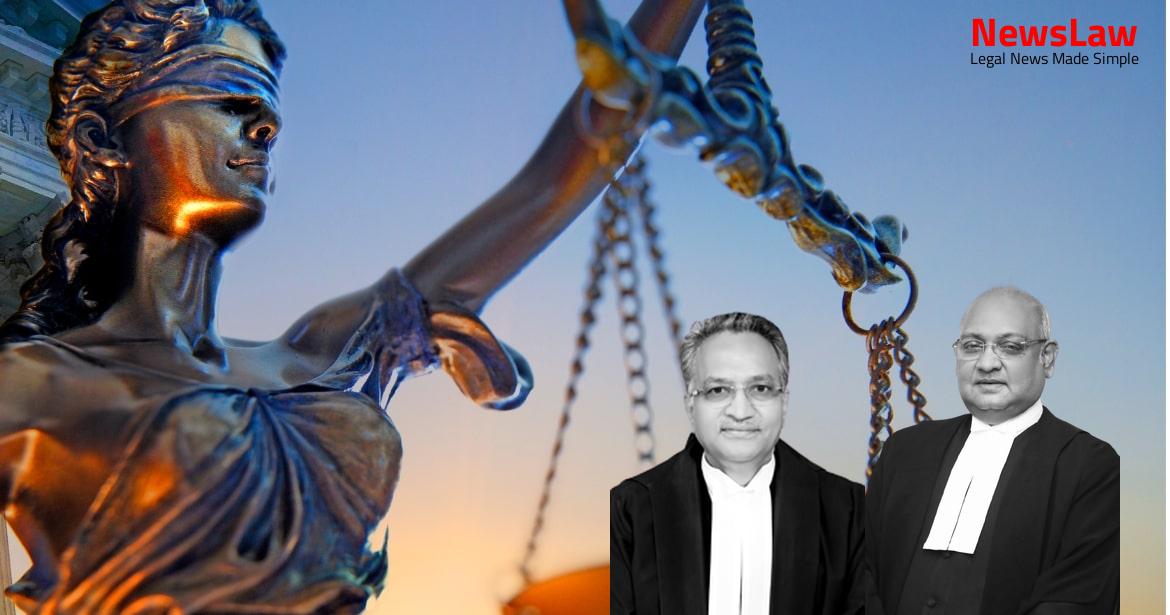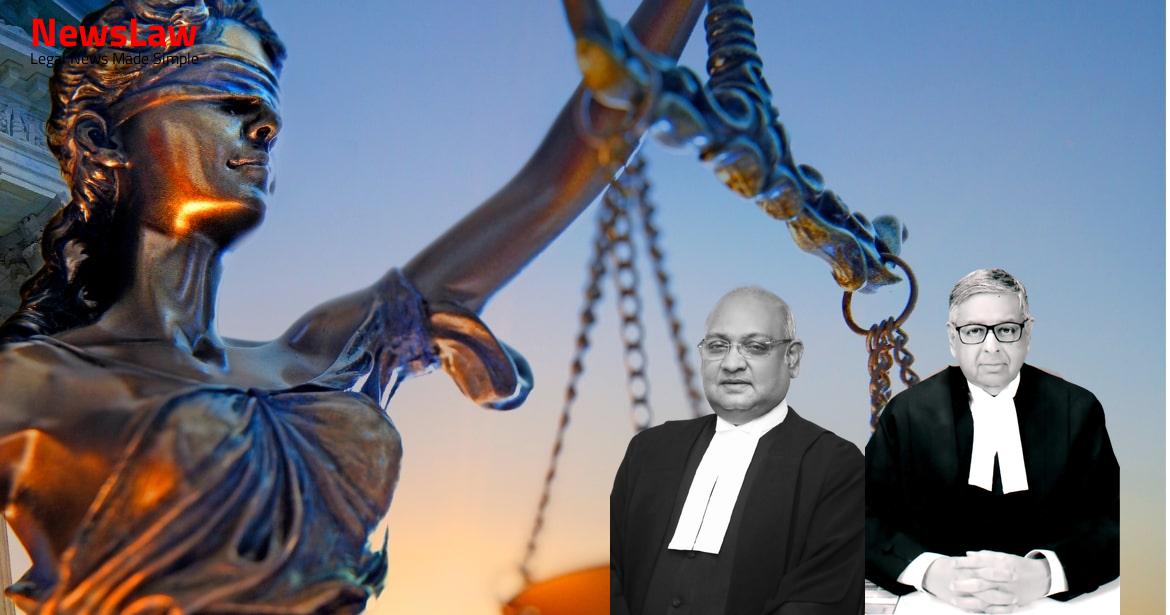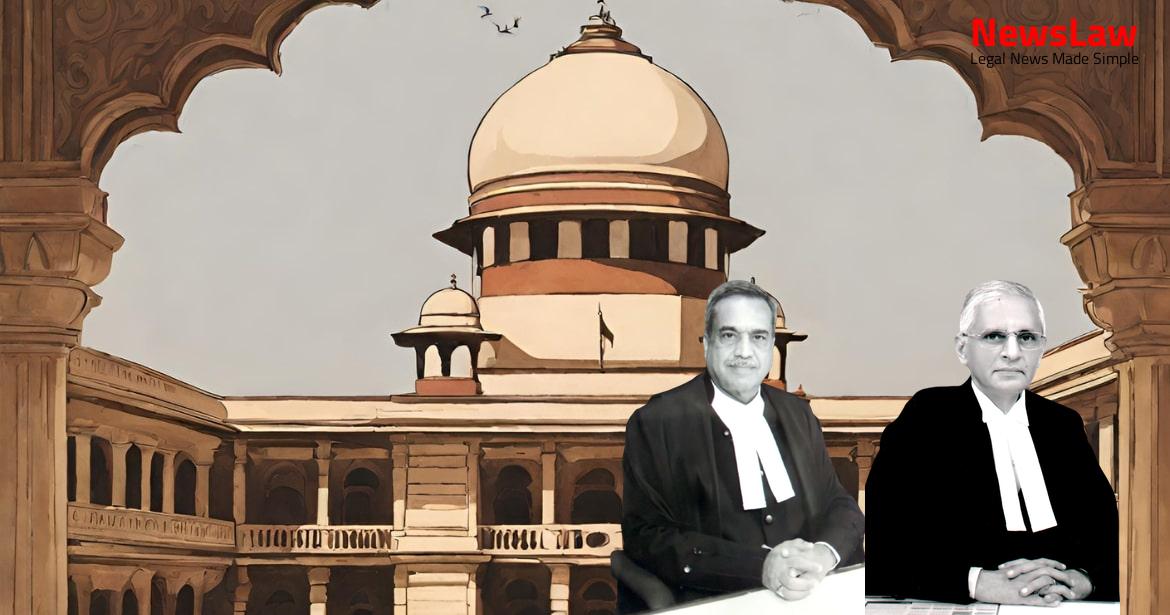In a significant legal development, the Delhi High Court recently passed a judgment on a retrenchment compensation dispute, affirming the decision of the Labour Court. The case involved a conflict over payment of compensation between the management and the workman. Now, the management is obligated to pay Rs.2,00,000/- to the workman within one month, as per the High Court’s ruling. This judgment sheds light on crucial aspects of labour law and fair compensation practices.
Facts
- The Labour Court failed to appreciate that the workman has always been receiving the salary prescribed for unskilled work and never objected while in service.
- The judgment of the Industrial Tribunal in the designation case did not provide a ‘skilled’ designation as per the scheduled employment rates notified in Delhi.
- The workman’s salary was based on unskilled work, and there was no objection during the period of employment.
- The Labour Court wrongly associated this case with unrelated judgments, as the facts were different.
- The Union did not pursue the implementation of the impugned award, indicating a lack of urgency on both parties’ parts.
- The learned Labour Court found that Sections 9A and 25-N of the Act were not applicable in the case.
- The claimant did not work with the management from the date of transfer until the rejoining date.
- The management is required to provide retrenchment compensation based on actual working period as per Section 25-F.
- The High Court of Delhi stayed the order of the POIT regarding the illegal transfer of 20 workers in 2006.
- The service of the claimant was retrenched after several years of the stay order.
- The Labour Court awarded the claimant a compensation of Rs. 200,000 plus interest.
- The Labour Court ruled in favor of the workman, directing the management to pay the compensation within one month.
- The workman is entitled to skilled/semi-skilled wages which were not paid by the management.
- The back wages issue will be decided by the High Court at the final judgment.
- The management calculated retrenchment compensation based on the last drawn salary, not as per the designated skilled and semi-skilled worker as ordered by the POIT.
Issue
- Issue 2: Whether the stayed award of the Industrial Tribunal could be relied upon by the Labour Court to determine entitlement to compensation
- The Workman was being paid as ‘unskilled’ labor from the date of appointment until retrenchment
- The key question for adjudication is whether the Labour Court’s decision warrants interference under Article 226 of the Constitution of India
Arguments
- The Petitioner argues that the impugned award was passed without considering all facts and circumstances.
- Despite transfer orders being deemed illegal by the Industrial Tribunal, the Petitioner reinstated the worker to avoid liability under section 17B of the Act.
- The Petitioner alleges the worker is being punished for forming a union to address grievances before labor authorities.
- It is contended that the retrenchment compensation issue is not clearly malicious.
- The Petitioner asserts that the court cannot reevaluate evidence and material on record in writ jurisdiction without showing illegality or perversity.
- Ultimately, the Petitioner believes the Labour Court was correct in issuing the impugned award.
- The Ld. ARM argued that the grant of designation to the claimant has been stayed by correctly calculating retrenchment compensation and notice pay based on their last drawn wages, not as per the award dated 29.09.2009.
- The claimant had filed a case against their transfer, and it was decided by POIT that they were performing an unskilled job.
- The award resulting from the transfer case was not challenged by the claimant before any forum, making it final and operating as res-judicata.
Analysis
- The Labour Court found that the workman’s services were terminated in violation of Section 25F of the Act.
- The Workman was entitled to compensation as per the 2009 award for skilled/semi-skilled category, but the management wrongly calculated it based on unskilled laborer wage.
- The Seniority list was displayed and sent to the Labor Department, but the Workman failed to provide evidence contradicting it.
- The POIT observations did not hold as res-judicata in the designation case.
- The Labour Court rightly awarded compensation based on the designation given in the previous award since it was granted before the stay.
- The management failed to provide proper compensation as per the skilled/semi-skilled designation leading to the violation of Section 25F of the Act.
- The Court rejected the management’s argument that the Labour Court could not award compensation based on the designation that was stayed.
- The Workman had rendered service for over 20 years and was entitled to compensation as per skilled/semi-skilled category.
- The findings of the Labour Court indicated illegal retrenchment by the management for not providing proper compensation in line with the designation awarded in the earlier Tribunal’s decision.
- The Court analyzed all evidence, legal arguments, and factual circumstances to arrive at the decision.
- The stay on the designation matter imposed in 2013 did not affect the illegality of the retrenchment as the Workman was not compensated as per the designated category.
- Section 144 CPC allows for variation, reversal, setting aside of decrees.
- Restitution principle applies to ensure parties are in their pre-stay position.
- Instances cited where successful party entitled to restoration of benefits.
- Imposition of a stay on proceedings alters the legal position until final decision.
- Judicial dicta highlight the duty of the court to restore parties post dismissal of stay.
- The case of the respondent workman’s retrenchment and subsequent restoration of designated status.
- Court’s duty to restore parties post-stay as per settled jurisprudence.
- Distinction between repeal and suspension of law explained.
- Effect of stay on adjudication discussed citing legal precedents.
- Differentiation between quashing and suspension of adjudication outcomes.
- Case law examples supporting the obligation of parties after dismissal of stay.
- The obligation of pay compensation in cases of genuine closure upheld.
- Judicial dicta reaffirming principles of restitution in various scenarios.
- Section 25-F of the Act outlines conditions for retrenchment of a workman.
- Employer must provide one month’s written notice or pay wages in lieu of notice for retrenchment.
- Compensation equivalent to fifteen days average pay for every completed year of service must be paid at the time of retrenchment.
- Employer must give notice to the appropriate government to have a valid claim for compensation.
- Workman must have been in continuous service for at least one year with the employer.
- Continuous service is a mandatory requirement for claiming compensation under Section 25-F.
- In the instant batch of petitions, the Court finds no merit and upholds the findings of the Labour Court.
- The petitioner management failed to present compelling arguments in their favor.
- The Labour Court consistently found in multiple writ petitions that the management illegally retrenched workers without proper compensation based on their designation.
Decision
- The issue before the Labour Court was the legality and justification of the workman’s retrenchment.
- The management is directed to pay Rs.2,00,000/- to the workman within one month of the award.
- If the payment is delayed, interest at 9% per annum will be applicable.
- Parties are to bear their own costs.
- The judgment is upheld, and the management must pay the compensation awarded by the Labour Court to the respective workmen within three months.
- The award is to be published by Govt. of NCT of Delhi.
- Pending applications are dismissed, and the judgment is to be uploaded on the website.
Case Title: SAWHNEY RUBBER INDUSTRIES Vs. SH. MANOJ KUMAR (2024:DHC:4569)
Case Number: W.P.(C)-7984/2020



